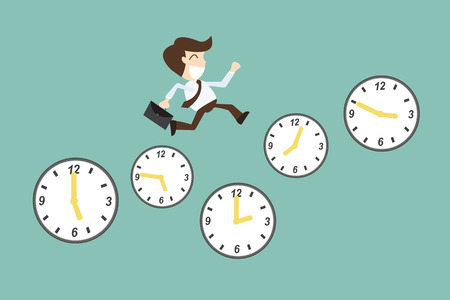A Meeting Agenda is a
Show of Respect

Have you ever attended a business or organizational meeting that didn’t have an agenda? Does this question make you cringe? One executive’s comment when asked was, “Maddening!”
Regardless of the business at hand, having meetings is a function of working together to accomplish an outcome. Being efficient and respectful of the time that employees, volunteers, and others are contributing means that every meeting should be necessary and organized.
The best way to ensure this is to develop a meeting agenda.
When Meetings are a Source of Dread
Employees and organization members have a lot to do in given time frames. Many meetings are necessary, but at times they are perceived and experienced as needless. When this happens, careless attitudes are on display.
What does “careless” look like at a meeting?
- Punctuality is ignored.
- Phones, tablets, and laptops receive the bulk of attendees’ attention.
- Excuses are given in lieu of information or reports.
- Side-tracking and side-barring are common.
- Overall lack of thought or individual preparedness.
- A feeling – and attitude – of “put-upon-ness” is common.
Perception determines the level of participation during a meeting. And a lack of organization signals a lack of importance.
Meeting Agendas and Leadership
Meeting organizers and others involved in meeting preparation play the role of hosts. Hosts are prepared for the events they orchestrate, envisioning trouble-free, friendly, inclusive, and contributive participation from the people attending.
Cost is always a concern, both monetary and opportunity cost. Everyone remains aware of what they and others are giving up in terms of how their time is spent. A good leader knows that time is a very precious commodity.
Planning ahead signals preparedness and professionalism and calls for others to observe these characteristics. A prepared leader serves as an example for employees or team members.
The agenda is where the life of the meeting begins. Participants can see the goals and expectations, giving the meeting purpose rather than an assumption of time to be wasted. This sense of purpose takes away guesswork and irritating “ad-libbing.”
Planning an Agenda
Planning can take various forms depending on the type of discussion necessary, the topic of the meeting, and the amount of time to be designated.
Some initial questions that will help form your agenda are:
- What is the subject at hand?
- Why is the meeting necessary?
- Who should attend?
- How long should the meeting be?
- How should the meeting be conducted? (Conference call, video conference, in-person, email?)
If your group is working on a lengthy project, multiple meetings will likely be necessary. It may be possible to set the dates and agendas for future meetings at the beginning.
Sample Agenda
Dear Team:
Please join me in a call to discuss (insert the summary of the reason the meeting is being called).
Time: from X o’clock to X o’clock
Agenda:
- Introduction/roll call.
- Questions, concerns to be raised
- What to be prepared for, specific assignments
- Action items or plan for proceeding
- Additional tasks and due dates
- Schedule next internal or general group discussion(s)
- Open discussion before closure.
Preparing a meeting agenda and communicating it well-ahead of time sets the tone of respect. Whether the meeting is on-site, in person, conference call, or video call, you are asking participants to make a hefty contribution to your cause – their time.
People respect others when they are respected. When agendas are clear and adhered to, expectations are met. And meeting participants feel that their time is not wasted.
You can cement the importance of your meeting by following up with participants. As one executive whom I interviewed stated: “Expectations are exceeded when an immediate follow-up summary is sent to meeting participants. Call it an ‘Executive Summary’ as participants can save it for immediate reference.”
When a meeting isn’t a waste of time, the information shared is taken seriously, participants feel included and respected, and the business at hand is conducted efficiently and productively. Now that’s a win-win-win!














